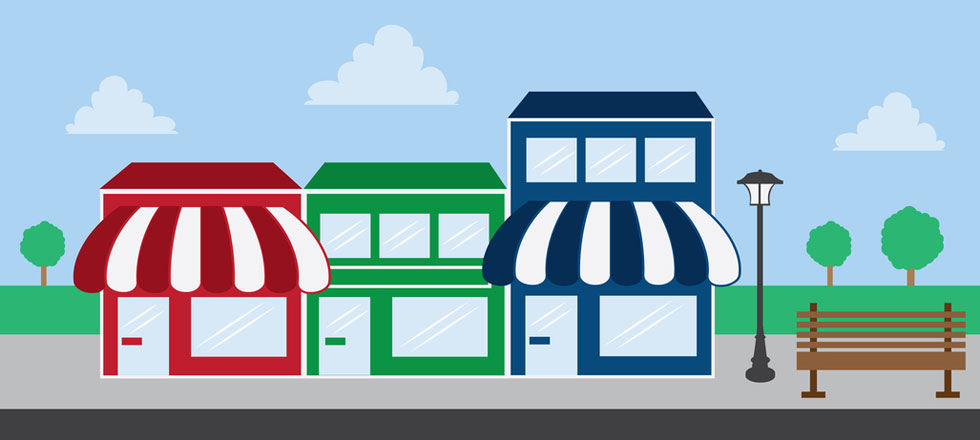Why Buy Local?
As our community or any community confronts difficult economic times, every dollar we spend counts towards bolstering the economy and when we spend those dollars buying local products or services, it is one of the most important contributions we can make for our community.
Studies have shown that when you buy from an independent, locally owned business, significantly more of your money is used to make more purchases from other local businesses and this can strengthen the economic base of our city.
When you buy local, you are actually creating jobs right here in your community. Where we shop, where we eat and have fun – all of it makes our community home. There is economic research that says that in an increasingly homogenized world, entrepreneurs and skilled workers are more likely to invest and settle in communities that preserve their one-of-a-kind businesses and distinctive character.

Building a Strong Local Economy
There are many well-documented benefits to our community and to each of us when we choose to buy from locally and independently owned businesses. We realize it is not always possible to buy what you need locally, but we merely ask you to Think Local FIRST! Here are ten reasons why you should always buy local.
Top Ten reasons to Buy Local

1. Support yourself: Several studies have shown that when you buy from an independent, locally owned business, rather than a nationally owned businesses, significantly more of your money is used to make purchases from other local businesses, service providers, farms — continuing to strengthen the economic base of our city.(Click here to see summaries of a variety of economic impact studies; these include case studies showing that locally-owned businesses generate a premium in enhanced economic impact to the community and our tax base.)
2. Creates more good jobs: Small local businesses are the largest employer nationally, so by supporting our locally owned businesses i, we can provide more jobs to our residents.
3. Support our local charity groups: Non-profit organizations receive an average 250{cff26fee3e86490b478b4b44e65a70d179de165045df7077b7156c7706473bca} more support from smaller business owners than they do from large businesses.
4. Keep our community unique: Where we shop, where we eat and have fun — all of it makes our character. Tourism benefits when communities maintain their identity. “When people go on vacation they generally seek out destinations that offer them the sense of being someplace, not just anyplace.” ~ Richard Moe, President, National Historic Preservation Trust.
5. Reduce environmental impact: Locally owned businesses can make more local purchases requiring less transportation and generally set up shop in town or city centers as opposed to developing on the fringe. This generally means contributing less to sprawl, congestion, habitat loss and pollution.
6. Get better service:
Local businesses often hire people with a better understanding of the products they are selling and take more time to get to know customers.
7. Invest in community:
Local businesses are owned by people who live in this community, are less likely to leave, and are more invested in our communities future.
8. Put your taxes to good use:
Local businesses in town centers require comparatively little infrastructure investment and make more efficient use of public services as compared to nationally owned stores entering the community.
9. Buy what you want, not what someone wants you to buy:
A marketplace of tens of thousands of small businesses is the best way to ensure innovation and low prices over the long-term.
A multitude of small businesses, each selecting products based not on a national sales plan but on their own interests and the needs of their local customers, guarantees a much broader range of product choices.
10. Encourage local prosperity:
A growing body of economic research shows that in an increasingly homogenized world, entrepreneurs and skilled workers are more likely to invest and settle in communities that preserve their one-of-a-kind businesses and distinctive character.